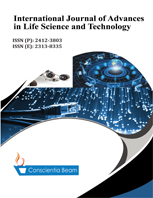Does the Propolis Reinforce the Autoclaved Bone Allograft and Does it Have an Immunomodulation Effect?
DOI:
https://doi.org/10.18488/journal.72/2014.1.2/72.2.54.59Abstract
The loss of bone substance in diaphyseal region of long bones is a common problem faced by veterinarian orthopedic surgeon. In order to recover from cortical bone defect our study proposes to implant an autoclaved orthotopic allograft of one centimeter length and compares effects of covered and uncovered bones with propolis in the femoral diaphysis under general anesthesia and sterile condition. The experiment involved eight adult dogs, from local breed and different sex; split into two groups. An autoclaved allograft without propolis was implanted for the first animals group (control group ) then the same graft has been implanted to the second animals group. The aim of our study is to determine whether the propolis resin can diminish the fragility of autoclaved allografts that was confirmed by the resistance of the graft covered with propolis even once the osteosynthesis material is removed and if the autoclaved grafts covered by the propolis used in our experiments have not suffered resorption despite the intensity of the immune response during the first month.The results show that all grafts covered with propolis remained unbroken and have not suffered of the resorption problems.

